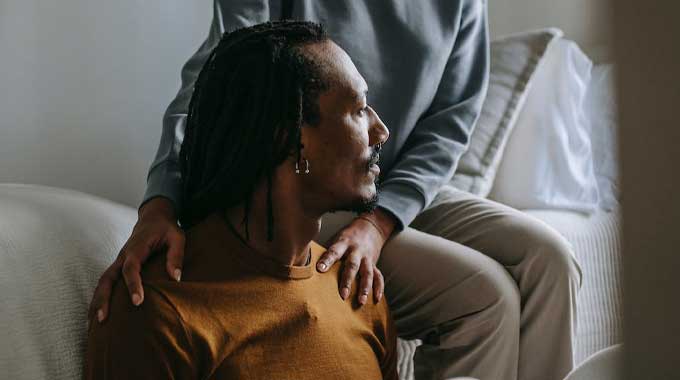Detox is when you stop taking a drug, and its chemicals leave your body. These chemicals include the drug itself and any toxins that your body broke the drug down into. Withdrawal symptoms are a side effect of detoxification. These symptoms can vary depending on the substances you have been taking and other factors such as your age and state of health. Detox is a necessary first step in the recovery from substance abuse and the beginning of a sober life.
If you are thinking about detox for yourself or a loved one, you may feel worried about what to expect. Withdrawal symptoms can be unpleasant, uncomfortable, and even dangerous. When a person goes through detox at an addiction treatment facility, medical professionals help with symptoms and make the process easier.
Can I Detox Without Medical Support?
Medical detox in Orange County is recommended for anyone who suffers from substance or alcohol abuse. However, it can be especially helpful for those who either abuse multiple substances or drugs associated with severe withdrawal symptoms or have been using heavily or for a long time. When you stop taking substances such as opioids, benzodiazepines, cocaine, alcohol, or MDMA, you can experience symptoms including vomiting and an irregular heart rate.
Medical detox is also highly recommended for people who have other health issues, such as diabetes, high blood pressure, or an underlying heart condition. At an addiction treatment facility, medical professionals supervise the detox process and can provide medication to deal with withdrawal symptoms.
If you are considering quitting substances, speak to a doctor to discuss your options. They can help you to understand the process and the best ways to move forward with your recovery.
What Withdrawal Symptoms Will I Have?
Every person’s experience of drug detox is unique. The withdrawal symptoms that a person has will depend on their age, state of health, the substances they have been abusing, and the duration and severity of their substance use disorder.
Addiction is a mental health disorder that compels people to take drugs despite the damage to their health, their relationships, and their lives. Going into detox is more than a physical process, it is the first step in recovery from a mental health disorder.
Alcohol Detox
When you go through alcohol detox, the symptoms can begin less than half a day after your last drink. You may experience the most intense detox symptoms in the first five to seven days. The length of your alcohol detox will depend on factors such as your health and how much you have been drinking. There may be additional complications if you have been taking other drugs.
Withdrawal symptoms after quitting alcohol may include the following:
- Nausea and vomiting
- Headaches
- Sweating
- Anxiety
- Confusion
- Tremors
- Seizures
In some cases, a person may experience a serious condition called delirium tremens. This requires immediate medical treatment. The symptoms of this include hallucinations and extreme mental confusion. It is advised to do an alcohol detox under medical supervision so that symptoms can be alleviated by trained staff.
Opiate Detox
Opioids are a large family of drugs. They include prescription medications such as codeine and morphine and illicit drugs such as heroin. When a person has been taking opioids, there is no quick answer to “how long does detox take?” The length of the detox process can vary depending on which drug has been taken, how much, and for how long.
When you stop taking opioid drugs, physical detox symptoms will appear within the first day. The most intense physical withdrawal symptoms occur around two to three days into the detox process and could last for two weeks. Medically-assisted detox is recommended for the physical symptoms of opioid withdrawal. Your symptoms may include:
- Symptoms that seem like flu
- Upset stomach
- Vomiting
- Shaking
In the final stage of withdrawal, you are likely to experience psychological withdrawal symptoms such as anxiety and depression. This stage may last for several months, and you could experience withdrawal symptoms over a year later. If you go to drug rehab, you will receive therapy to learn ways to maintain your sobriety.
Cocaine Detox
Cocaine is a very addictive stimulant drug that requires medical intervention for a successful detox process.
If you have an alcohol addiction and abuse cocaine at the same time, the two drugs will create a toxic chemical called cocaethylene. When you go to alcohol rehab you should tell the staff if you have also been using cocaine.
Someone who has been taking cocaine but no other drugs may experience physical and psychological symptoms. However, they could find that their withdrawal symptoms are mostly psychological. A person going through cocaine detox may experience the following symptoms as they adjust to the drug’s absence.
- Extreme fatigue
- Dehydration
- Paranoia
- Hallucinations
- Mood swings
- Inability to sleep
- Increased anxiety
- Cravings for cocaine
The most intense cocaine withdrawal symptoms may be experienced in the first two weeks after the last dose. Other symptoms can continue for up to two months.
What Happens in the Medical Detox Process?
When you stop taking substances you give your body the chance to eliminate waste products that are present because of the substance use. This cleansing process helps you to begin healing, but you may feel worse for a period as your brain adjusts and your body gets used to the absence of the drug.
In medical drug detox, experts such as nurses, psychiatrists, and doctors assist the person with the withdrawal from the substance and eliminating toxins. Medical detox at Cornerstone consists of evaluation, stabilization, and long-term treatment.
Evaluation
At the evaluation stage, we talk to you to learn about your addiction and your state of health. This conversation gives the medical team the information it needs to make a treatment plan that works for you.
This stage may include tests to assess your current medical state both physically and mentally, looking at medical records to assess your history, and a general chat to get a better understanding of the drugs you use, why, and how they affect you as an individual.
Stabilization
This is the stage where detox begins. Doctors and nurses will be available to help you through the process and at the stage when symptoms peak to the highest point.
Different therapies will be assigned to you depending on the drug you are withdrawing from and how severe the symptoms are. Doctors may also prescribe medication to reduce the effects of withdrawal and help you sleep.
Long-Term Treatment
In detox, your body removes the toxins from its system. In the following stage, you can receive therapy to furnish you with the skills needed to quit using for good.
After detox is over, you will have the opportunity to move forward into the next stage of your recovery journey. At Cornerstone, the options include further residential treatment that is tailored to your needs and an intensive outpatient program that runs seven days a week.
Therapies for post-detox treatment at Cornerstone include:
- One-to-one talk therapy
- Group therapy led by trained professionals
- Family and couples therapy to help the person’s loved ones to understand the addiction journey and to gain an insight into their own mental health
- Relapse prevention therapy to help people to avoid taking drugs in the future
Are You Considering Medical Detox?
If you are tired of drink or drugs and want to start living a sober life, you may feel tempted to try going cold turkey on your own. The physical and psychological symptoms that occur when a person stops abusing substances can make withdrawal uncomfortable and risky to health. This is why it is better to receive detox treatment at a drug rehab facility.
It’s natural to have questions and to want to explore your options. At Cornerstone, we are happy to talk to you. We are available seven days a week, 24 hours a day, to answer your questions about drug or alcohol abuse.
You can telephone us at (714) 844-6071 or email [email protected], and one of our experts will get back to you.








